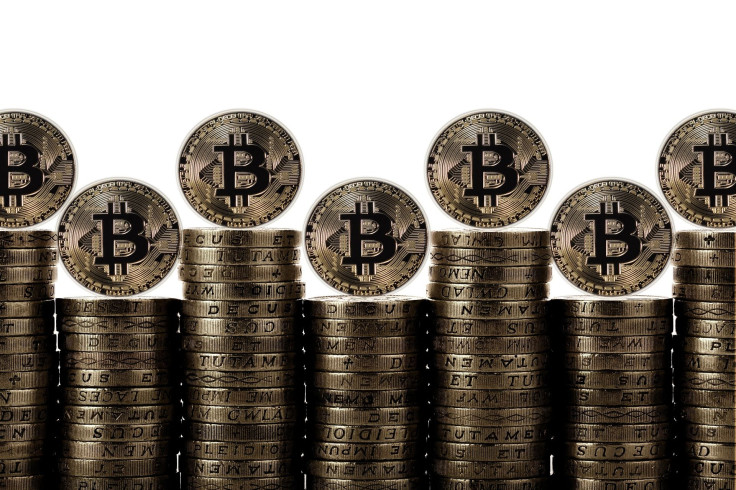Bitcoin Exchanges Caught Between Wary Banks And Popular Demand

Cryptocurrency exchanges around the world are under an unprecedented amount of pressure. Meanwhile, Quartz reported Indian banks are delaying routine processes for local exchange platforms such as Koinex for several weeks. “A tussle between our payment service partner and their bank has caused an indefinite delay in the settlement of a large portion of deposits to Koinex in the past 2 weeks,” Koinex stated in a blog post on Sunday.
“Apparently, banks have been asked by the RBI [Reserve Bank of India] in an informal communication to stay away from dealing with the virtual exchanges,” one Indian lawyer told Quartz. “The government is following the same method used by China, where they haven’t explicitly banned bitcoin, but made the regulatory environment around it so difficult by cracking down on other things that it is no longer a conducive environment for cryptocurrencies.”
China took a more stringent approach, banning local exchanges in 2017 until lawmakers hammer out a regulatory structure. Now Bloomberg reported the People’s Bank of China is quietly outlining plans to limit the cheap electricity sources bitcoin miners rely on, all without outlawing cryptocurrency itself. Some Chinese exchanges simply moved to Hong Kong. However, Hong Kong-based cryptocurrency enthusiast Leonhard Weese wrote large Chinese exchanges dropped from facilitating almost 90 percent of bitcoin’s global trading volume down to nearly 7 percent.
Meanwhile, the Korea Financial Intelligence Unit and the Financial Supervisory Service is investigating six South Korean banks that offer accounts to cryptocurrency exchanges. Regulators are concerned about whether these banks are still following all the established anti-money laundering laws when working with this new type of customer.
Rumor has it the South Korean government is cooking up a new regulation to ban anonymous cryptocurrency exchange accounts. Anonymous sources told Yonhap News the new law would only allow “real-name bank accounts” to transact with “matching accounts at cryptocurrency exchanges,” so that all lawful exchange accounts would be need to be linked to one specific bank account with the user’s real identity information. This isn’t too far from the current status quo in the United States, where customers sometimes still bear the brunt of banking scrutiny.
Wells Fargo customers who use bitcoin have complained of abruptly shuttered accounts for years. More recently, JPMorgan customer and vlogger Jerry Banfield claimed his business banking account was closed after he sold bitcoin on Coinbase. [Full disclosure: I am also a JPMorgan customer who had trouble trying to transact on Coinbase. The bank’s customer service representative told me the trouble was with Coinbase, not my bank account. My account was not frozen.] In short, banks worldwide rarely have a seamless process for working with cryptocurrency exchanges. Banks are wary of cryptocurrency's uncertain regulatory landscape. JPMorgan CEO Jamie Dimon has been publically critical of bitcoin, citing legal concerns.
At the same time, exchange platforms are overwhelmed by the flood of new customers. The Luxembourg-based exchange platform Bitstamp told International Business Times in an email that more than 100,000 new customers applied to exchanges every day for the past several weeks. Coinbase is plagued by routine outages and delays because of surging traffic.
Coinbase added 100,000 users in the past 24hrs
— Alistair Milne (@alistairmilne) November 2, 2017
Data: https://t.co/R9B63J2d6Q#bitcoin
this is crazy. the decentralized exchange @RadarRelay did nearly 10x their daily volume to hit a record $2M in volume. 24 hours later, they're about to cross $10M. really though.https://t.co/FN6SJuiHJE pic.twitter.com/UUkl5g5BmI
— Meltem Demirors (@Melt_Dem) January 9, 2018
Both popular, well-established platforms and new exchange startups are feeling the strain. “Each of the past few days has produced 50,000 new account registrations and 10,000 new support tickets — an order of magnitude above where we were just last quarter,” incumbent exchange platform Kraken stated in a December 2017 blog post. “Concurrent users, daily trades and volumes are also hitting new all-time highs. We are struggling to keep up.”
There are other ways to acquire bitcoin, such as cryptocurrency ATM machines and peer-to-peer commerce within the cryptocurrency community. But these methods are best suited to small amounts of money, especially given the current climate of high network fees. Exchange platforms, regulators, banks and payment processors will need to establish a more reliable pipeline in order to keep cryptocurrency users from switching to unregulated channels.
© Copyright IBTimes 2024. All rights reserved.





















